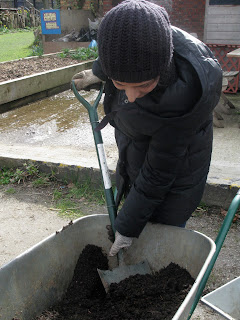Facilitator's homework
Prior to the workshop, I had been well primed as to the range and nature of the pupils by the director of CCYDT, Sabino Miranda: I knew that the pupils would be boys, mostly Muslim, but also Hindu, Christian and no formal faith, within an age range of 13-15 years, with a few a little older.
Most workshops I had delivered have been for adults and so I decided to reach out to my good friend and colleague across the pond, Mohamad Chakaki, to explore and hear ideas. Mohamad has given many more workshops to school age children than myself and I value his thoughts.
My ideas following these interactions were as follows: Keep it varied, keep it moving, and allow for some healthy disorder!
Making it universal
I had 1½ hours. We began with a go-round ice-breaker so everyone spoke from the start. Then, rather than going straight into any Islamic eco-theology, I had decided it might work better to explore principles through exercises that stimulated each participant to connect with their own inner compass/sense of ethics first, and then being given a chance to share. I attempted to frame this in a universal language to support inclusively.
Such a foundation can, I feel, potentially lend itself to the terminology and principles associated with any faith tradition. The group would thus be better equipped to look at what initially emerged in an open way, and then later in the workshop, within the framework of core Islamic concepts that underlie the outward aspects of the faith, including action to restore ecological balance.
The first exercise was the 'spectrum line', which is designed to draw out viewpoints and discussion on different issues. Participants choose to stand anywhere along the length of an imaginary line according to how strongly they agree or disagree with a statement. E.g. "Can we have too much of a good thing?" (to later explore the idea of mizan/balance). Varied ideas sprung from this exercise allowing for a healthy spread of viewpoints.
Then, using a numbering system, the pupils were divided into four groups, each taking on one of two questions for discussion (e.g. "Think 'natural world'. Think 'human communties'. Does the natural world have anything to teach us?"). They had fifteen minutes for this which I thought this might end up being too short. However, they got their ideas down faster than I anticipated. Their presentations were both intersting and varied in content.
Afterwards I attempted to weave into a short talk what had emerged from the exercises whilst drawing on key Islamic concepts. I followed this with a five minute slide-show on Muslims engaged in ecological action (Although they can have a place, I like to avoid too many visuals preferring instead to be more directly relating with those present). There was then space for questions, a bit of last minute sharing, and then the distributing of the WIN photo-booklets on Islam & Climate Change for the pupils.
All in all, it was a fulfilling day, and although I am sure I had the luxury of a pretty focussed group of children, I'm looking forward to to engaging more with a younger age group as I am able.
- With children, short varied exercises can engage them better than something that goes on for too long or too much of the same.
- Taking a group of children deep into Islamic eco-theology in a short time can be challenging, and is indeed impossible at 5pm when they've been at school since 8! On the other hand, giving a flavour of 2 or 3 basic concepts such as fitrah (natural disposition/innate goodness, which some seemed to grasp really well), mizan (balance), and tawhid (unity/oneness) is feasible to weave effectively into a single workshop on climate change dynamics and taking action.
- I found I could have addressed key themes/topics - that were raised by the children within the workshop - better than i did during my short talk at the end. What I might do next time in a similar situation is actually note down keywords as the themes/topics came up, and glance and reflect on them at appropriate times before I give a talk.
- A certain level of disorder is to be expected from time-to-time - not everyone can stay focussed the whole time. Thus, a limited degree of chaos or 'play' alongside the intended sequence of events seemed to act as a healthy release that then allowed a more naturally guided return to the formal thread of activities. That's how it felt with this kind group, but I'd be interested to hear of anyone else's experiences!? How much 'disorder' is healthy?...
- I arrived at the school just 5 minutes before the workshop (due to a misunderstanding over timings) so had less time to organise e.g. pre-prepare some flip-charts, familiarise myself with the space etc... than I had imagined. This however pushed me to think more in terms of essentials and go more with instinct, which I have found can be a strength. On other occasions though, I am aware that too little time to settle before a workshop does little to help me be present.
- With regards the 'spectrum line' exercise, after drawing out some thoughts from a group of participants bunched close together, thought-provoking questioning can tap into deeper layers. This of course needs balancing with the comfort level of the person being questioned and drawing our a variety of viewpoints in the time available.

